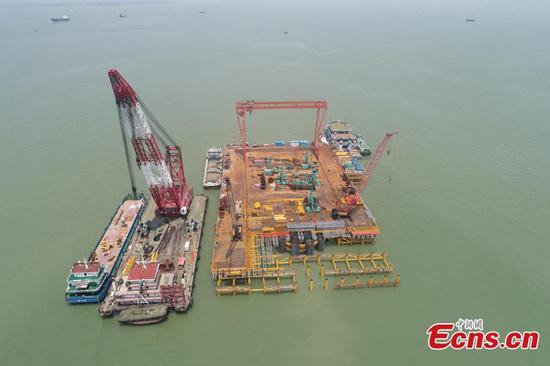China needs to ramp up efforts to further promote the construction of its cybersecurity system and safeguard the country's network security, said senior industry regulators.
More efforts should be made to increase investment in core network security technology research and development, make breakthroughs in key technologies such as big data and artificial intelligence, build an industrial internet security system, actively develop the cybersecurity industry, and build a cybersecurity technology management system covering telecommunications, the internet, and the industrial internet, according to Liang Bin, deputy director of the network security administration of the Ministry of Industry and Information Technology.
"With the blossoming of cloud computing, big data, artificial intelligence and other new technologies, the internet has become integral to our daily lives and has a tremendous impact on the global economy and security patterns," Liang said at a recent cybersecurity summit in Beijing. "Meanwhile, security risks are posing an increasing threat to the whole of society."
In recent years, a surge of internet attacks across the world has highlighted the role of cybersecurity. Last year, the WannaCry ransomware virus affected hundreds of thousands of computers in more than 150 countries and regions, including China.
With threats like this on the horizon, Zhong Zhong, deputy director of the cybersecurity and protection bureau of the Ministry of Public Security, said China needs to establish rules and regulations that can be effectively implemented to create a better environment.
"We should continuously implement cybersecurity laws. Next, we should further clarify internet service provider's obligations and the relevant technology standards, which will help implement cybersecurity laws and regulations," Zhong added.
The cybersecurity laws were introduced in June last year to protect personal and sensitive information, as well as individual privacy.
China, as one of the world's largest IT markets, boasts huge amounts of data. And the country is seeking to accelerate the implementation of the national big data strategy, improve the digital infrastructure and safeguard data security.
In August, the Standing Committee of Guiyang People's Congress announced that the Guiyang big data safety management regulation will come into effect on Oct 1 this year.
This marks the country's first local regulation on big data security management. The regulation clarifies the person responsible for big data security - such as the owner, manager, user and service provider of the data - and requires responsible entities to implement security protection of personal information and important data.
In addition, the regulation also stipulates that the people's government at or above the county level shall establish and improve the supervision and inspection mechanism for big data security work and implement big data security management.
Ding Ke, senior vice-president of Tencent Holdings Ltd, said entering the new era of the digital economy, information security has become a driving force for industrial development and is vital to the functioning of society.
"The government, companies and users need to work together to raise awareness of cybersecurity, " Ding added.


















































